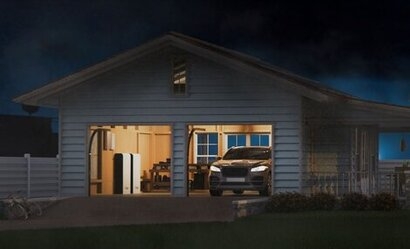
The change in building regulation requirements sees the majority of new residential developments, workplaces and supermarkets required by law to have electric vehicle (EV) charging points installed. The change, which comes into force from today, also includes those residential buildings undergoing major renovations with more than ten parking spaces which have associated parking.
The new legislation is part of the government’s wider plan to help cut carbon emissions by encouraging more drivers towards electric cars with an extra 145,000 charging points fitted each year. The move is in addition to part of the run up to the wider ban of the sale of fully petrol and diesel vehicles due to come into effect in 2030.
“We welcome the plans to encourage drivers towards electrified motoring in all its forms by enabling increased access to EV charging points for all home owners” said Ohme CEO David Watson. “Over the past six months, even before this new legislation arrived, our enquiry levels from developers have more than doubled and we can see that building companies have embraced these new regulations. Developers are already seeking out smarter chargers such as ours as an active selling point for buyers.”
Ohme’s smart chargers can connect with the national grid in real time and automatically adjust its charging for drivers to take advantage of all the times of low price charging with smart electricity tariffs. The result is that EV drivers can potentially run their car for less than £100 a year by smart charging their EV with an Ohme charger compared to charging on standard electricity rates.
Furthermore, Ohme is also alone in offering drivers the option to charge their EV when renewable energy generation on the grid is at its highest, further lowering their CO2 impact and helping developers and building companies to meet corporate sustainability targets.
Richard Smith, National House Building Council’s Head of Standards, Innovation and Research, added that the journey to net zero carbon will have significant implications for housebuilders, planners and architects and that ensuring the right electric vehicle infrastructure, including easy access to chargepoints, is key.
“Our own NHBC Foundation research has shown that the UK needs more than 4 million electric vehicle chargepoints by 2030, from a figure of around only 180,000 just two years ago” said Mr Smith.
According to the NHBC, there was an increase of 25 per cent of new home registrations in 2021 compared to 2020 with growth in 11 out of 12 UK regions. So far in 2022, sales of fully-electric vehicles are already up 71.2 per cent on 2021 with a 15-fold increase in the choice of electric models according to the Society of Motor Manufacturers and Traders.
The new legislation has been welcomed by Schneider, a French multinational company that specialises in digital automation and energy management.
“At Schneider we welcome the legislation requiring all new buildings to have EV charging points installed as this is critical in the journey to net zero" said Nico van der Merwe, Vice President Home & Distribution UK & Ireland, Schneider Electric."But 80% of the buildings that exist today will still be in use in 2050. So it is essential that we also ensure the ability to retrofit existing building stock and availability of on street charging points in parallel.
To achieve this a holistic approach is necessary. It is not possible to simply add EV points to either new build or existing homes, buildings, streets in the volume that will be needed without ensuring the infrastructure is in place to guarantee that the overall performance of our homes is not affected. EVs can increase electricity consumption in residential buildings by 40 percent (Source: Delta EE), so it will be more important than ever that people can easily manage the efficiency of their homes, including energy consumption, production and storage.
To avoid electrical outages or the creation of homes where you can’t cook and charge simultaneously the additional power requirements that decarbonisation and a shift to a more electric world needs, must be planned for and accommodated. This requires the acceleration of smart, sustainable homes that can effectively manage the variable energy needs of IoT-connected devices, and harness and store renewable energy to supplement traditional power supply."
For additional information

